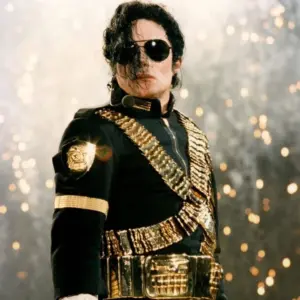For the first time, South Korea's Truth and Reconciliation Commission has admitted to significant malpractices in its adoption processes, including document falsification and inadequate oversight. This landmark acknowledgment comes as part of an ongoing effort to reconcile with South Korean adoptees who have fought for justice and recognition of their plight.
South Korea Confronts Adoption Malpractices: Acknowledgment and Calls for Apology

South Korea Confronts Adoption Malpractices: Acknowledgment and Calls for Apology
A government commission in South Korea reveals widespread adoption fraud, calling for acknowledgment and reparations for past wrongs against adoptees.
The article text:
In a historic move, South Korea's Truth and Reconciliation Commission has publicly acknowledged the widespread malpractices in its adoption system, particularly during the post-war decades when approximately 200,000 South Korean children were sent abroad for adoption. On March 26, 2025, this government agency highlighted shocking revelations about how adoption agencies falsified documentation to portray children as orphans and expedited their overseas placements.
Sun-young Park, chairwoman of the commission, shared the findings following thorough investigations into adoption practices, emphasizing the grievous misconduct where children were dispatched "like luggage" to meet the demands of profit-driven adoption agencies. Many South Korean adoptees, who have returned to their homeland after years of living abroad, heralded this acknowledgment as a significant step in confronting a dark chapter of South Korean history.
The report disclosed instances of grotesque malpractice, including the sending of children in place of others who had unfortunately died prior to adoption, revealing the lack of compassion and oversight in the practices of the agencies involved. The commission shed light on how these agencies were granted extensive authority to become legal guardians, effectively sidelining biological parents and their rights.
This development underscores the need for accountability, with the Truth and Reconciliation Commission urging the South Korean government to officially apologize for the violations faced by adoptees and their families. This commitment to acknowledgment is pivotal as it aids in healing for the adoptees and carries the potential to reshape the narrative around South Korea’s historical responsibilities in adoption practices.
As the world's leading exporter of intercountry adoptees, South Korea now faces a reckoning with its past, aiming not only to recognize the trauma inflicted on its children but also to instigate broader discussions about child welfare and adoption ethics. The push for an apology and recognition reflects a growing sentiment among a resilient community of adoptees who advocate for justice, reparations, and a more humane approach to child welfare.
In a historic move, South Korea's Truth and Reconciliation Commission has publicly acknowledged the widespread malpractices in its adoption system, particularly during the post-war decades when approximately 200,000 South Korean children were sent abroad for adoption. On March 26, 2025, this government agency highlighted shocking revelations about how adoption agencies falsified documentation to portray children as orphans and expedited their overseas placements.
Sun-young Park, chairwoman of the commission, shared the findings following thorough investigations into adoption practices, emphasizing the grievous misconduct where children were dispatched "like luggage" to meet the demands of profit-driven adoption agencies. Many South Korean adoptees, who have returned to their homeland after years of living abroad, heralded this acknowledgment as a significant step in confronting a dark chapter of South Korean history.
The report disclosed instances of grotesque malpractice, including the sending of children in place of others who had unfortunately died prior to adoption, revealing the lack of compassion and oversight in the practices of the agencies involved. The commission shed light on how these agencies were granted extensive authority to become legal guardians, effectively sidelining biological parents and their rights.
This development underscores the need for accountability, with the Truth and Reconciliation Commission urging the South Korean government to officially apologize for the violations faced by adoptees and their families. This commitment to acknowledgment is pivotal as it aids in healing for the adoptees and carries the potential to reshape the narrative around South Korea’s historical responsibilities in adoption practices.
As the world's leading exporter of intercountry adoptees, South Korea now faces a reckoning with its past, aiming not only to recognize the trauma inflicted on its children but also to instigate broader discussions about child welfare and adoption ethics. The push for an apology and recognition reflects a growing sentiment among a resilient community of adoptees who advocate for justice, reparations, and a more humane approach to child welfare.



















